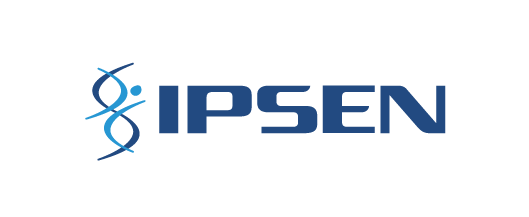Information about our medicines
Our portfolio includes medicinal products marketed to specialists working in targeted therapeutic areas.
Read more about medical products:

Report Adverse Events
Adverse events should be reported.
Reporting forms and information can be found at http://www.mhra.gov.uk/yellowcard or search for MHRA Yellow Card in Google Play or Apple App Store. Adverse events should also be reported to Ipsen via email at pharmacovigilance.uk-ie@ipsen.com or phone on 01753 627777
Reporting forms and information can be found at https://www.hpra.ie/ or e-mail medsafety@hpra.ie. The HPRA can also be contacted on +353 16764971. Adverse events should also be reported to Ipsen via email at pharmacovigilance.uk-ie@ipsen.com or phone 01753 627777 (IE phone: +353 1 8098256)

Pharmacovigilance
Pharmacovigilance relates to the detection, assessment, understanding and prevention of adverse events (side-effects) and any other medicine-related problem.
Its aim is to improve patient care and safety, to ensure public health and safety in relation to the use of medicines and to promote understanding, training and effective communication to healthcare professionals and the public.
Countries have regulations and laws that require manufacturers of medicines to notify appropriate health authorities of adverse event reports. Authorities inspect manufacturers periodically to ensure their obligations are met.
What types of information are collected by pharmacovigilance?
When medicines come onto the market, there can be limited information about their safety, based primarily on clinical trials. All medicines have risks as well as benefits and the Pharmacovigilance department plays an important role by continuously evaluating information received from patients and healthcare professionals in balancing benefits against risk.
Some of the information collected includes:
- Side effects to medicines
- Use of medicines during pregnancy and breastfeeding
- Abnormal laboratory findings
- Occupational exposure to medicines
- Overdose, misuse of medicine
- Counterfeit products
- Unexpected benefit from a medicine
- Lack of effectiveness
- Death while using a medicine
- Interactions between medicines and between medicines and food
- Using a medicine outside of its intended use
- Medication errors

Reporting of Side Effects
Always read the Patient Information Leaflet, or instruction supplied with your medicine. It lists the known side effects or problems and advises you on what to do.
If you get any side effects, talk to your doctor, pharmacist or nurse. This includes any possible side effects not listed in the package leaflet. The details on how to do this will be described in the package leaflet or instructions supplied with your medicine.
In the UK, you can directly report side effects via the Yellow Card Scheme at http://www.mhra.gov.uk/yellowcard or search for MHRA Yellow Card in the Google Play or Apple App Store.
In Ireland, you can directly report side effects to the HPRA. Reporting forms and information can be found at www.hpra.ie or email medsafety@hpra.ie
Adverse events should also be reported to Ipsen via email at pharmacovigilance.uk-ie@ipsen.com or phone 01753 627777 (IE phone +353 1 8098256). By reporting side effects, you can help provide more information on the safety of medicines.
Report Product Quality Complaints
Product quality complaints should be reported. In the UK and Ireland, product quality complaints should be reported to Ipsen via email at medinfo.uk-ie@ipsen.com or phone 01753 627777 (IE phone +353 1 8098256).
ALLSC-GB-000467
January 2024

